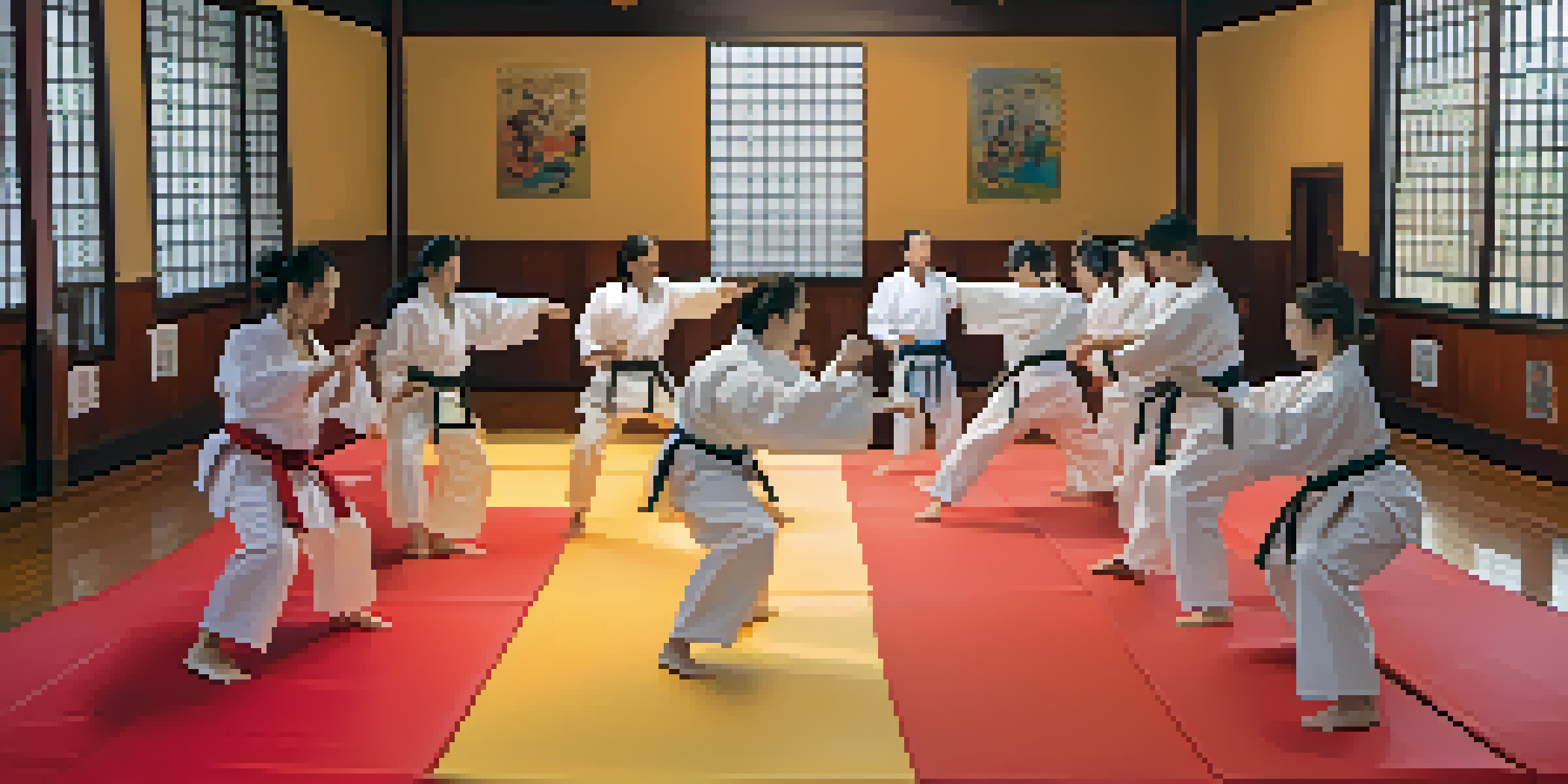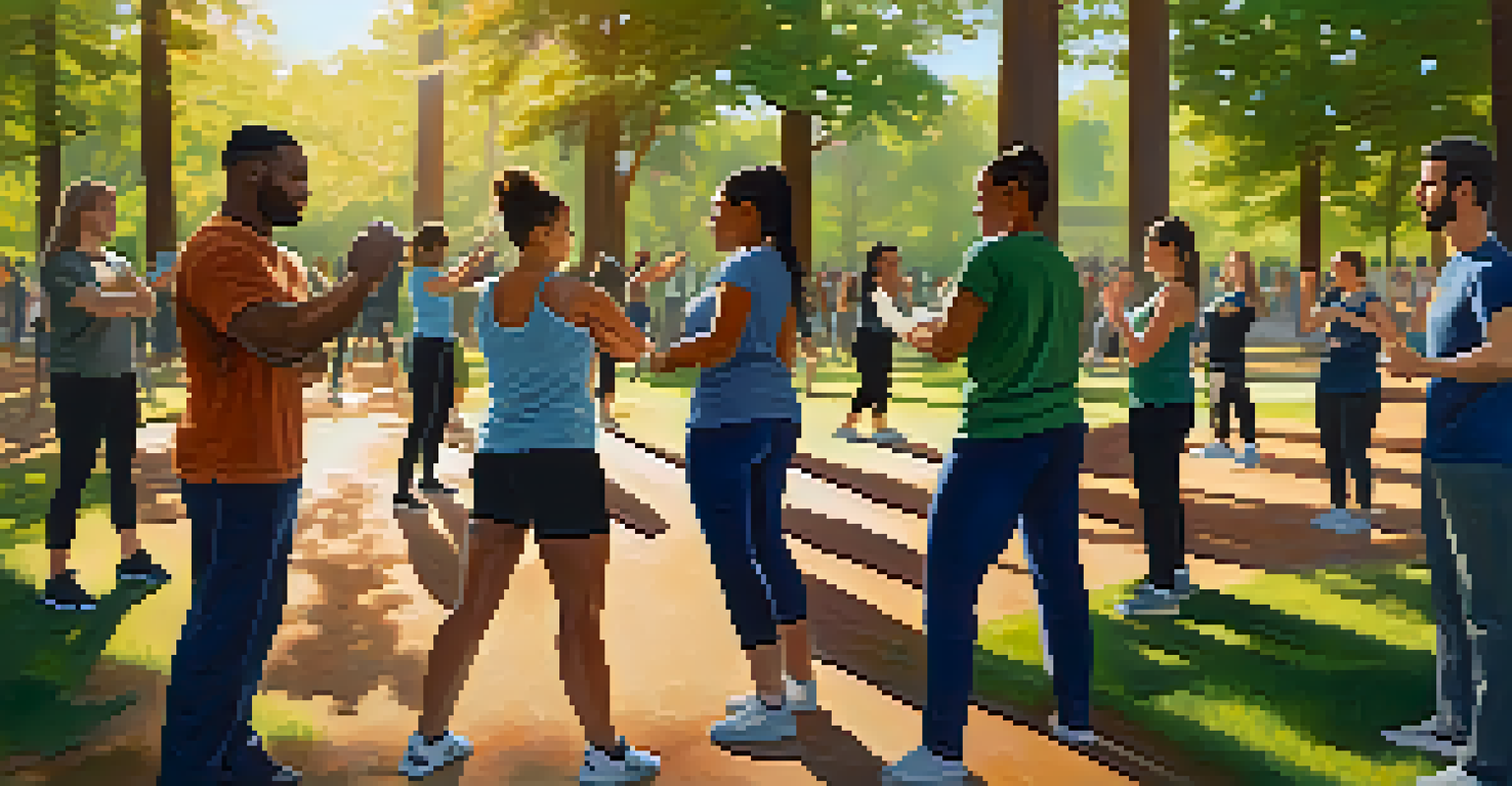Self Defense Skills and Their Effect on Victim Mentality

Understanding Victim Mentality in Today's World
Victim mentality often refers to a mindset where individuals see themselves as perpetual victims of circumstances. This perspective can lead to feelings of helplessness and a lack of control over one’s life. When someone feels victimized, it can hinder their ability to take proactive steps toward their own safety and well-being.
The greatest weapon against stress is our ability to choose one thought over another.
This mentality can be influenced by various factors, including past experiences, societal messages, and personal beliefs. Individuals may internalize negative experiences, leading them to adopt a defensive posture in life. As a result, they may miss opportunities for empowerment and personal growth.
Understanding this mindset is crucial, as it affects not only personal safety but also mental health. By recognizing the patterns of victim mentality, individuals can begin to explore ways to shift their perspective and reclaim their sense of agency.
The Role of Self Defense in Empowerment
Self-defense training is often seen as a practical way to enhance personal safety. However, beyond the physical skills, it plays a significant role in psychological empowerment. When individuals learn self-defense, they gain confidence and assertiveness, which can help combat feelings of victimhood.

The act of training and mastering new skills fosters a sense of achievement and control. As individuals become more adept at defending themselves, they often report a shift in their self-perception, moving from feeling vulnerable to empowered. This transformation can be life-changing, as it alters how they navigate their environment.
Victim Mentality Affects Empowerment
Individuals with a victim mentality often feel helpless, which can hinder their ability to take proactive steps towards safety and well-being.
Moreover, self-defense teaches individuals to trust their instincts and make quick decisions in stressful situations. This newfound confidence can spill over into other areas of life, promoting a proactive rather than reactive approach to challenges.
Building Resilience Through Self-Defense Training
Resilience is the ability to bounce back from adversity, and self-defense training can significantly enhance this trait. As individuals face physical challenges in training, they learn to push through discomfort and overcome obstacles. This process builds mental toughness and a sense of resilience.
You cannot control what happens to you, but you can control your attitude toward what happens to you.
In self-defense classes, practitioners often encounter situations that simulate real-life threats, allowing them to practice staying calm under pressure. By navigating these scenarios, they build the mental fortitude needed to face real-life challenges. This practice can be instrumental in breaking the cycle of victim mentality.
Furthermore, the supportive environment of self-defense training fosters community and encouragement. Participants often form bonds that reinforce their sense of belonging and support, further helping to foster resilience.
The Psychological Impact of Learning Self-Defense
Learning self-defense can have profound psychological effects, shifting the way individuals view themselves and their capabilities. The skills acquired in training often lead to increased self-esteem and a more positive self-image. As people recognize their ability to defend themselves, they tend to feel stronger and more capable in other areas of life.
Additionally, self-defense training encourages individuals to take responsibility for their own safety and well-being. This sense of ownership can counteract feelings of helplessness commonly associated with victim mentality. When individuals feel capable and empowered, they are less likely to identify as victims.
Self-Defense Builds Confidence
Learning self-defense not only enhances physical safety but also boosts self-esteem and empowers individuals to take control of their lives.
The psychological benefits extend beyond the training mat; they can influence how individuals interact with the world. With enhanced confidence, individuals may find themselves engaging more actively in their communities and standing up for themselves and others.
Self-Defense as a Tool for Community Empowerment
Self-defense training can also serve as a valuable tool for community empowerment. When groups come together for self-defense classes, they foster a culture of support and strength. This collective empowerment can help break down barriers and encourage individuals to advocate for themselves and one another.
Communities that prioritize self-defense training often see a ripple effect, where empowered individuals contribute positively to their surroundings. They become role models, inspiring others to take control of their safety and well-being. This sense of community enhances the overall resilience of the group.
Moreover, when individuals feel a strong sense of community, they are less likely to internalize victim mentality. Instead, they may collectively focus on solutions and support each other's growth, creating a safer and more empowering environment.
Transforming Fear into Confidence
Fear is a natural response to perceived threats, but it can become paralyzing if not addressed. Self-defense training provides a constructive outlet for channeling fear into focused action. By learning how to respond to threats, individuals can transform their fear into confidence.
The process of facing fears in a controlled environment—like a self-defense class—allows individuals to confront and overcome their anxieties. This not only enhances their self-defense skills but also empowers them to tackle fears in other areas of life. The confidence gained can be a game-changer for those who previously felt trapped by their fears.
Community Support Fosters Resilience
Self-defense training in community settings encourages collective empowerment, breaking down barriers and promoting a culture of support.
As individuals learn to manage their fear, they begin to see themselves as proactive participants in their lives rather than passive victims. This shift in perspective is key to breaking the cycle of victim mentality and fostering a more empowered mindset.
Moving Forward: Embracing Empowerment
Embracing empowerment through self-defense skills is a journey that requires commitment and practice. It's about more than just physical techniques; it's about reshaping how we view ourselves and our capabilities. As individuals continue to train and grow, they build a foundation of resilience that serves them in all aspects of life.
The skills learned in self-defense classes can lead to lasting changes in mental health and emotional well-being. Individuals begin to prioritize their safety and take proactive measures, leading to a more fulfilling and empowered life. This journey can inspire others, creating a ripple effect of empowerment within communities.

Ultimately, the goal is to create a culture where individuals feel capable of standing up for themselves and others. By addressing and transforming victim mentality, self-defense training can play a pivotal role in fostering a generation of empowered individuals ready to face life's challenges.